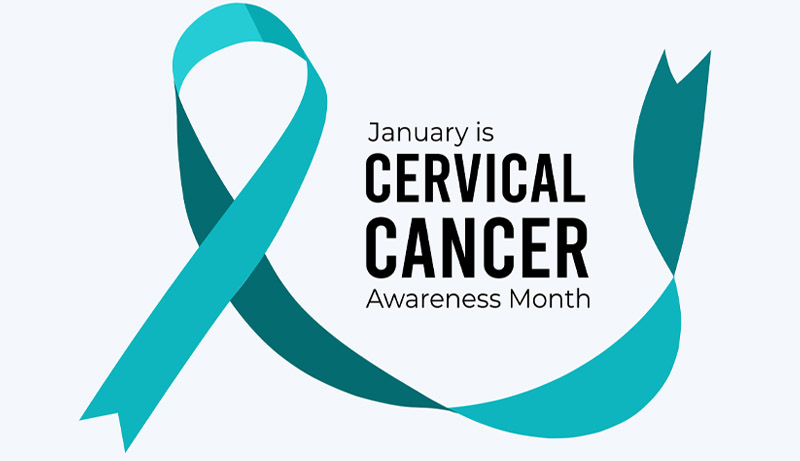
January is Cervical Cancer Awareness Month, a vital reminder to prioritize regular health screenings that can save lives. Cervical cancer, while serious, is one of the most preventable and treatable cancers when detected early. Through routine screenings and early intervention, lives can be saved, and treatment outcomes significantly improved.
The Importance of Regular Screenings
The Centers for Disease Control and Prevention (CDC) and the American Cancer Society recommend regular screenings to detect cervical cancer at its earliest and most treatable stages:
- Ages 21-29: Women should begin screening at age 21 with a Pap test every three years.
- Ages 30-65: Women have two options: continue with a Pap test every three years or opt for co-testing (Pap test combined with HPV testing) every five years.
- Over 65: Women with a history of normal screening results may no longer need to be screened. However, those with previous cervical precancer or other risk factors should consult their healthcare provider for guidance.
These guidelines underscore the importance of identifying early changes in cervical cells, allowing for timely treatment before cancer develops or progresses.
Treatment Options for Cervical Cancer
If cervical cancer is detected, treatment options vary depending on the stage and individual health factors. Common treatments include:
- Surgery: Often used for early-stage cervical cancer, procedures like hysterectomy or trachelectomy can remove cancerous tissue.
- Radiation Therapy: High-energy beams target and destroy cancer cells, often used in combination with chemotherapy for more advanced stages.
- Chemotherapy: Administered to kill cancer cells or shrink tumors, especially in advanced stages or when radiation is also required.
- Targeted Therapy and Immunotherapy: Newer treatments focus on attacking cancer cells specifically or boosting the immune system to fight cancer effectively.
Early detection through regular screenings ensures a higher likelihood of successful treatment and recovery.
Free Screenings Through Shore Medical Center’s CEED Program
For those in Atlantic and Cape May counties, Shore Medical Center provides an invaluable resource as the lead agency for the Cancer Education and Early Detection (CEED) program. Funded by the state, this program offers FREE cancer screenings for residents who are uninsured, underinsured, and meet income criteria.
CEED covers screenings for cervical, breast, colorectal, and prostate cancers, including Pap tests, mammograms, colonoscopies, and PSA tests. By reducing financial barriers, the program ensures that lifesaving screenings are accessible to everyone, regardless of income or insurance status.
If you or someone you know is unable to afford critical cancer screenings, contact the CEED program at 609-653-3484.
Take Action Today
Cervical cancer often shows no symptoms in its early stages, making regular screenings essential. Early detection not only improves survival rates but can also mean less invasive and more effective treatments.
This January, take the opportunity to schedule your cervical cancer screening. Encourage your loved ones to do the same. If cost is a concern, Shore Medical Center’s CEED program is here to help. Remember, a few minutes of screening could save your life.
Stay proactive, stay healthy, and take charge of your well-being today.
The contents of this article have been reviewed by Vijay Sandilya, MD, Medical Director of the Medical Oncology program at Shore Cancer Center, a member of the Penn Cancer Network. Since 1987, Shore Medical Center has received approval from the American College of Surgeons Commission on Cancer (CoC), by meeting or exceeding the organization’s stringent standards for patient care. Shore Cancer Center is located in Somers Point, NJ, across Medical Center Way from Shore Medical Center.










